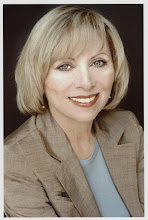Money permeates every relationship in life and acts as a powerful force in enhancing similarities and reinforcing differences. In my research and work with couples over the years and helping them in their money management challenges, I found it fascinating that the most compatible couples shared similar money personality traits and values , http://www.kathleengurney.com. The old adage, "opposites attract", just didn't hold true among the couples that seemed to use money well together. The opposites I did see in money personalities came to see me because money became the symptom of emotional differences and discord and the scapegoat for all that was going wrong.
So, today when I read the article, "In Spending Matters, Opposites' Attraction Fuels Conflict" in the International Herald Tribune,http://global.nytimes.com/?iht, I wasn't surprised to find that researchers had found that people who were described as "spendthrifts" and "tightwads" tended to marry. These "dichotomized duos" reported more unhappy marriages than people with more similar attitudes toward spending. These "financially polar pairs" reported greater conflict over money and lower levels of marital bliss.
This makes sense to me because the spending/saving trait is the most obvious to see in action with couples. The tugging and control over the purse strings becomes obvious with all purchase decisions. Money becomes the symbol of differing opinions and values with a compromise hard to reach considering how far apart the saver and spender are on this trait.
In consulting with opposite money personalities like the Achievers (savers and accumulators of wealth) and the Hunters (emotional spenders), their conflicts were obvious. Achievers get turned on by watching their money accumulate while the Hunters' greatest joy is a great shopping treasure hunt.
You would think that this obvious difference in money personalities would be a warning signal in considering marriage and managing money together. Unfortunately, couples plunge ahead not wanting to make such affairs of the wallet a priority.
There is hope if couples are willing to do the hard work to reach compromise and compatibility. If they're willing to explore each other's perspective and reach the most suitable solution that satisfies both partner's needs without jeopardizing security, then whatever differences they have can be managed for mutual satisfaction.
Monday, August 17, 2009
Subscribe to:
Post Comments (Atom)


I see this in my work frequently. Couples that work well around money tend to have similar views, which not surprisingly, are more healthy. Couples that don't work well around money have one, or both, partners with some severe money disorders. The most effective method I've witnessed of helping them change is financial therapy, especially where the financial planner and the financial therapist, are working together in meetings with the couple.
ReplyDelete